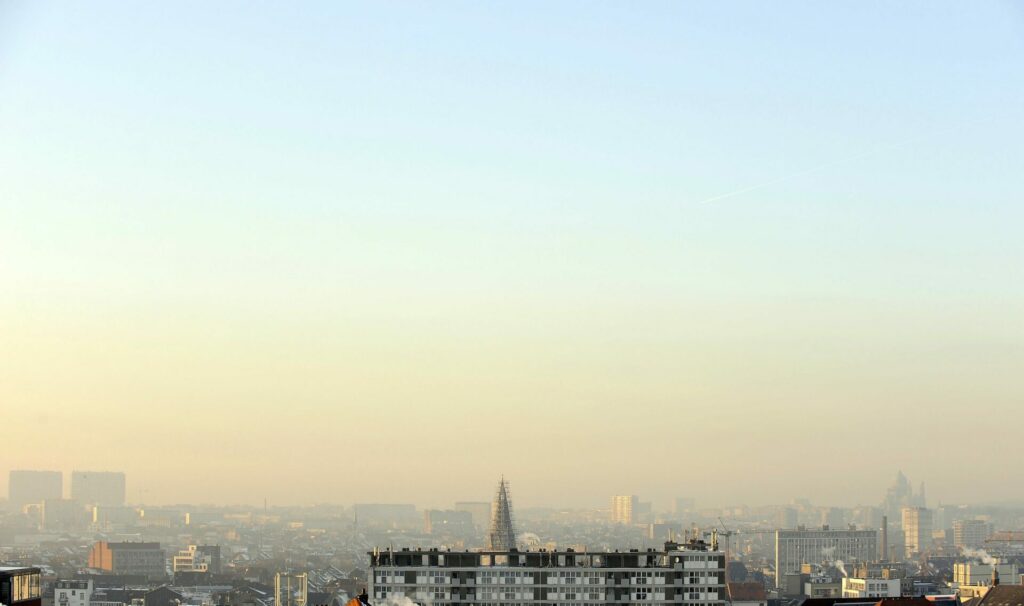Several measures will be taken in the Brussels-Capital Region from Saturday (tomorrow) to reduce the excessive concentrations of fine dust in the air: the speed limit will be reduced to 50 km/h and STIB public transport services will temporarily operate free of charge.
The so-called 'information threshold' for fine dust has been exceeded throughout Belgium since Thursday, meaning that more than 35 micrograms of fine dust per cubic metre are measured. On Friday morning, 40 micrograms/m³ were measured in Flanders, 39 in Brussels and 42 in Wallonia.
"As no significant improvement in air quality is expected today and in the following days, the 'information and intervention phase' with accompanying measures will be introduced in the Brussels-Captial Region on Saturday 17 December," a statement on the website of the Interregional Cell for the Environment (IRCEL) reads.
It is not yet clear how long these measures will remain in force.
No wood burning
In practice, this means that the maximum speed will be limited to 50 km/h on roads where a maximum of 70 or 90 km/h normally applies, and the police will carry out additional speed checks.
Additionally, heating your home with wood will also be banned (unless it is the only heating source you have). Lastly, Brussels public transport company STIB will temporarily operate free of charge, and day tickets for the Villo! sharing bike service will also be made free.
In Flanders and Wallonia, the 'information phase' remains in force, meaning the air quality is bad enough that people should be made aware of it, but not (yet) bad enough to take extra measures.
While there is no temporary ban in force, like in Brussels, the Flemish Environment Agency is still calling on people not to burn wood in fireplaces or stoves if not absolutely necessary. "The impact of wood burning on air quality in a residential environment can be very high locally."
Related News
- COP27: The way forward for the EU after the climate change conference
- The fall and rise of green Brussels
- Belgium adapts its air quality index to the latest WHO recommendations
According to IRCEL, the high fine dust concentrations are mainly due to the low wind speed. "As a result, air pollution from industry, agriculture, traffic and building heating is poorly diluted. Due to the cold weather, emissions from heating, mainly caused by wood-burning stoves, are also higher."
Fine dust can have an effect on people's breathing, especially for those with asthma, for example, or those who already have bronchitis. Vulnerable people, such as young children, the elderly or those with respiratory conditions are advised to avoid unusual physical exertion.
Fine dust also easily penetrates indoors because they are very small particles. The impact does vary, depending on the concentration in the air and how long someone is exposed.

